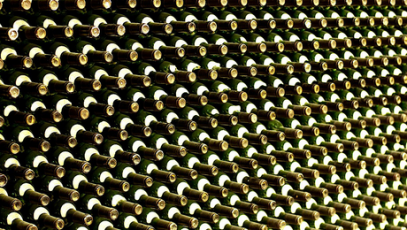Parliament Magazine - December 19, 2011 - Issue 340, p. 10.
A new 250 unit housing project endorsed by Qatar Charity for Palestinian fishermen.
Poverty is widespread in Gaza, with 1.6 million living in an open air prison, write Paul Murphy. Irish Member of the European Parliament with GUE/NGL, Paul Murphy was part of the largest Council for European Palestinian Relations (CEPR) delegation to Gaza in November 2011.
To view the Parliament Magazine PDF, click here: "Under Siege"
My first attempt to break the siege of Gaza, with the Freedom Flotilla in the summer, was foiled by the sabotage of the Irish boat and the extension by the Greek government of Israel's blockade into Europe. At the start of November, we sailed again. I was on the Irish boat, the MV Saoirse (Irish word for freedom), along with 14 others and we were accompanied by a Canadian boat, the Tahrir.
In the brutal response of the Israeli establishment, we received a glimpse of the treatment that Palestinians face. We were violently boarded by heavily armed and masked Israeli soldiers in international waters, who commandeered our boats and took us to Israel. On arrival, an official assured us that we would not be strip searched, that our return home would be expedited and that we could make phone calls to our families that evening – all lies. Our laptops, cameras and mobile phones were confiscated and have still not been returned.
In prison, we were subjected to harsh conditions, with lights left on all night, some prisoners forced to stand to attention six times in the course of the night and locked in our cells for 21 hours out of 24. Due to our protests within the prison, together with protests around the world, including in Israel, our conditions did improve. We achieved the right to freely associate and access to our reading and writing material. We were eventually permitted a single phone call, which was limited to three minutes and we were told we could not talk about anything political – presumably to enable the Israeli propaganda machine to do its work while we were isolated.
According to Israeli law, we should have been released after 72 hours. But it was only after seven nights of detention that I was finally deported. The last night was spent in a detention centre at the airport that was a hell-hole, with human excrement smeared on the walls and prisoners being almost permanently locked in their cells.
Shortly after my return, I seized the opportunity to take part in a delegation of parliamentarians and activists to Gaza over land, via the Rafah Crossing. My brief visit confirmed the horrific impact that the Israeli establishment's blockade is having on the 1.6 million people of Gaza. They truly are living in an open air prison.
While rebuilding work is going on, the whole area is like a warzone, with bombed buildings all over the Gaza Strip, including an airstrike during our visit. Poverty is extremely widespread, with 80% of people reliant on foreign aid to survive and unemployment at around 40%. We visited the biggest refugee camp, Jabalya, where over 100,000 people live in extremely cramped and desperate conditions. We met with doctors in al-Shifa hospital in Gaza, which is badly affected by the siege, with 150 out of 450 essential medicines being entirely out of stock.
This illegal and inhumane siege represents a collective punishment of the people of Gaza. It should be answered with more than crocodile tears. The EU-Israel Association Agreement should be suspended until the blockade is lifted. A mass movement of Palestinians, together with broader Arab masses, as well as Israeli workers and young people is needed to defeat the Israeli establishment, end the blockade of Gaza and the oppression of the Palestinians.

